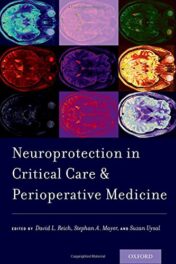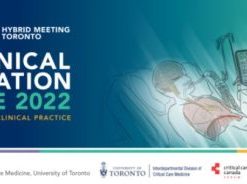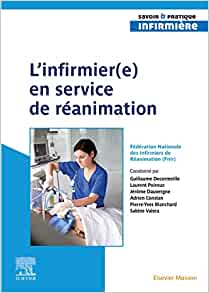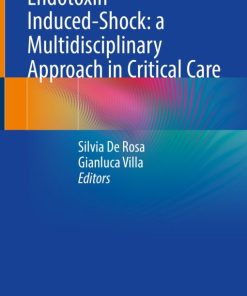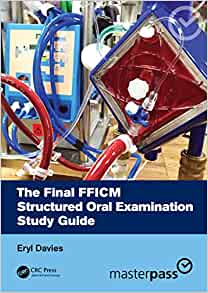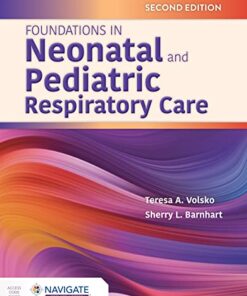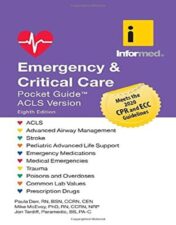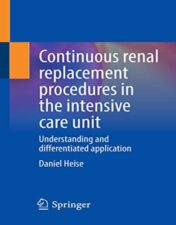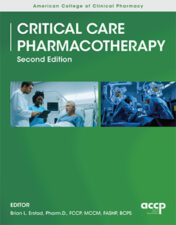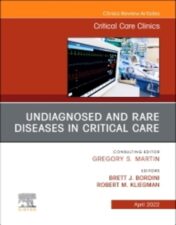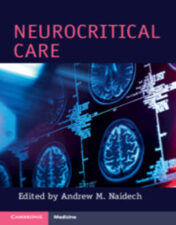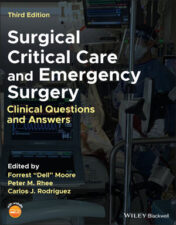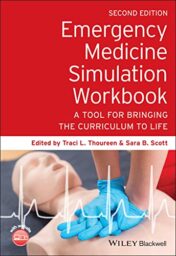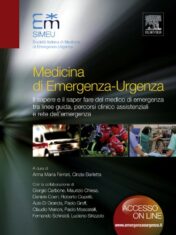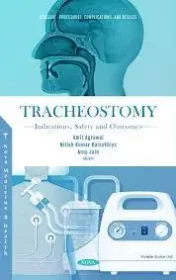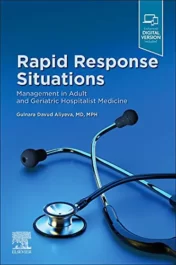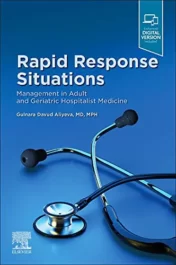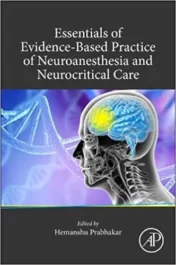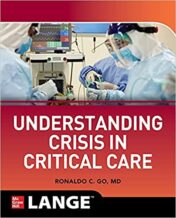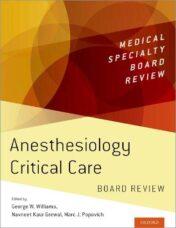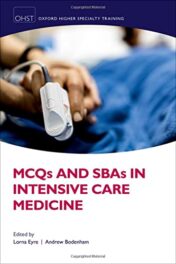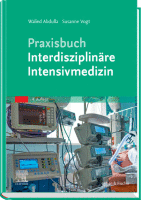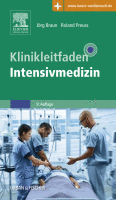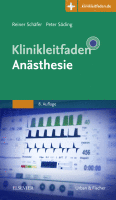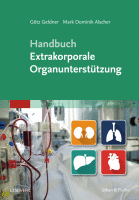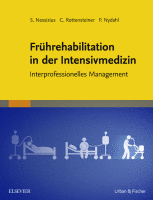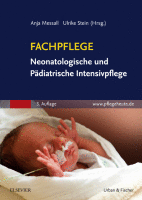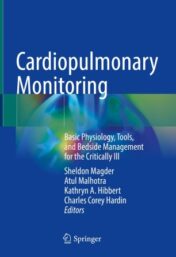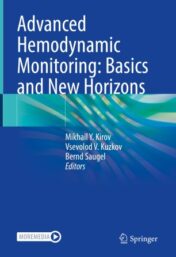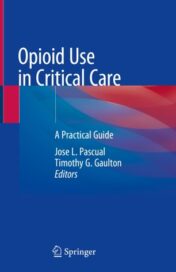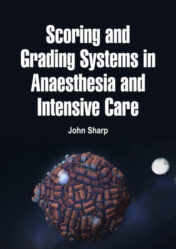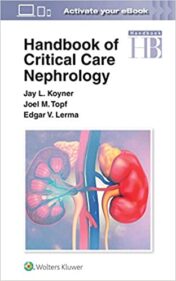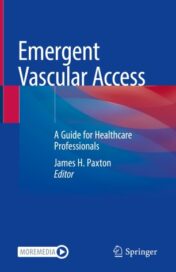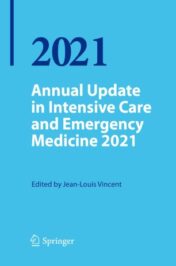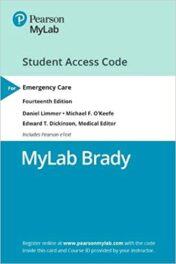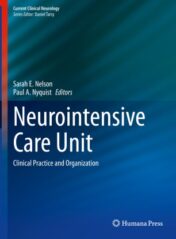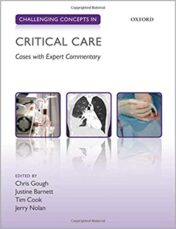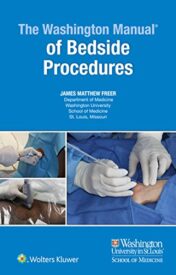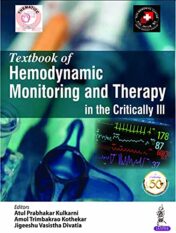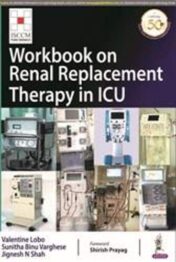Neuroprotection in Critical Care and Perioperative Medicine (PDF)
$14
Neuroprotection in Critical Care and Perioperative Medicine (PDF)
Neuroprotection is becoming an increasingly recognized and important part of critical care and perioperative medicine. As human beings survive increasingly severe life-threatening injuries and complex surgical interventions, it has become clear that neurologic injury and dysfunction is a primary driver of long-term outcome and disability. Neuroprotection is currently under-recognized as the primary objective in promoting recovery from life-threatening injuries, illnesses, and procedures.
To address this knowledge gap, Neuroprotection in Critical Care and Perioperative Medicine provides a concise review of the current state of the art of clinical care and research. Within the context of critical care, the specific topics covered will include the primary forms of brain injury on which neuroprotection research and intervention has traditionally focused, such as traumatic brain injury, cardiac arrest, acute ischemic stroke, and intracranial hemorrhage, as well as CNS injuries related to sepsis and acute respiratory distress syndrome, mechanical circulatory support, and premature birth. Within the context of perioperative care, the specific topics covered will include anesthetic and perioperative strategies to reduce brain injury from cardiac surgery, aortic surgery and endovascular repair, carotid endarterectomy, vascular and endovascular neurosurgery, and other major surgical procedures.
Related Products
INTENSIVE CARE BOOKS
INTENSIVE CARE BOOKS
L’infirmier(e) en service de réanimation (Original PDF from Publisher)
INTENSIVE CARE BOOKS
INTENSIVE CARE BOOKS
Online Masterclasses Critical Care Medicine (Updated January 2023) (Videos)
INTENSIVE CARE BOOKS
American Journal of Critical Care 2022 Full Archives (True PDF)
INTENSIVE CARE BOOKS
INTENSIVE CARE BOOKS
INTENSIVE CARE BOOKS
INTENSIVE CARE BOOKS
Practical Trends in Anesthesia and Intensive Care 2020-2021, 1st edition (EPUB)
INTENSIVE CARE BOOKS
Clinical Cases in Critical Care, 1st edition (Original PDF from Publisher)
INTENSIVE CARE BOOKS
SCCM 2022 Critical Care Congress On Demand (CME VIDEOS) (Updated Complete Videos)
INTENSIVE CARE BOOKS
Critical Care Update 2022, 4th Edition (Original PDF from Publisher)
INTENSIVE CARE BOOKS
Repetitorium Transplantationsbeauftragte (German Edition) (EPUB)
INTENSIVE CARE BOOKS
The Ventilator Book, 3rd Edition (AZW3 + EPUB + Converted PDF)
INTENSIVE CARE BOOKS
Chestnet Critical Care Board Review On Demand 2022 (CME VIDEOS)
INTENSIVE CARE BOOKS
Emergency & Critical Care Pocket Guide, Revised Eighth Edition 2021 Original PDF
INTENSIVE CARE BOOKS
Fundamental Critical Care Support: Resource Limited 2020 AZW3 + EPUB + Converted PDF
INTENSIVE CARE BOOKS
Cases in Pre-Hospital and Retrieval Medicine, 2nd edition 2022 Original PDF
INTENSIVE CARE BOOKS
Critical Care Pharmacotherapy, Second Edition 2022 EPUB + Converted PDF
INTENSIVE CARE BOOKS
Critical Care Transport with Navigate Advantage Access 3rd Edition 2022 Original pdf
INTENSIVE CARE BOOKS
Neurocritical Care (Cambridge Manuals in Neurology) 2022 Original PDF
INTENSIVE CARE BOOKS
Evidence-Based Critical Care: A Case Study Approach, 2nd Edition 2020 Original PDF
INTENSIVE CARE BOOKS
Command the Airway with Rich Levitan An emergency airway masterclass CME VIDEOS
INTENSIVE CARE BOOKS
INTENSIVE CARE BOOKS
Critical Care and Hospitalist Medicine Made Ridiculously Simple 2019 High Quality PDF
INTENSIVE CARE BOOKS
Critical Care: Board and Certification Review, 2022 Edition 2021 AZW3 + EPUB + Converted PDF
INTENSIVE CARE BOOKS
Advances in Pacu Post Anesthesia Care Unit 2022 Original PDF
INTENSIVE CARE BOOKS
Tracheostomy: Indications, Safety and Outcomes 2021 Original PDF
INTENSIVE CARE BOOKS
INTENSIVE CARE BOOKS
INTENSIVE CARE BOOKS
Current opinion in critical care 2021 full archives true pdf
INTENSIVE CARE BOOKS
INTENSIVE CARE BOOKS
INTENSIVE CARE BOOKS
40th ISICEM International Symposium on Intensive Care & Emergency Medicine 2021 (CME VIDEOS
INTENSIVE CARE BOOKS
Essentials of Aerosol Therapy in Critically ill Patients 2021 Original pdf
INTENSIVE CARE BOOKS
MCQs and SBAs in Intensive Care Medicine (Oxford Higher Special Training) 2021 Original pdf
INTENSIVE CARE BOOKS
Oxygen: Creating a New Paradigm First Ed 2021 epub+converted pdf
INTENSIVE CARE BOOKS
Praxisbuch Interdisziplinäre Intensivmedizin 2021 Original pdf
INTENSIVE CARE BOOKS
INTENSIVE CARE BOOKS
Notarzt-Leitfaden Mit Zugang zur Medizinwelt A volume in Klinikleitfaden 2017 Original pdf
INTENSIVE CARE BOOKS
INTENSIVE CARE BOOKS
INTENSIVE CARE BOOKS
INTENSIVE CARE BOOKS
Internistische Therapie Theoretische Modelle und Klinische Praxis 2016 Original pdf
INTENSIVE CARE BOOKS
Handbuch Extrakorporale Organunterstützung 2019 Original pdf
INTENSIVE CARE BOOKS
INTENSIVE CARE BOOKS
Fachpflege Neonatologische und Pädiatrische Intensivpflege 2018 Original pdf
INTENSIVE CARE BOOKS
Palliative Care in Cardiac Intensive Care Units 2021 original pdf
INTENSIVE CARE BOOKS
Advanced Hemodynamic Monitoring: Basics and New Horizons 2021 Original pdf+VIDEOS
INTENSIVE CARE BOOKS
Opioid Use in Critical Care A Practical Guide 2021 Original pdf
INTENSIVE CARE BOOKS
INTENSIVE CARE BOOKS
INTENSIVE CARE BOOKS
Asthma Education Principles and Practice for the Asthma Educator 2021 Original pdf
INTENSIVE CARE BOOKS
Identification of Biomarkers, New Treatments, and Vaccines for COVID-19 2021 Original pdf
INTENSIVE CARE BOOKS
Scoring and Grading Systems in Anaesthesia and Intensive Care (PDF) 2019
INTENSIVE CARE BOOKS
INTENSIVE CARE BOOKS
Emergent Vascular Access A Guide for Healthcare Professionals Original pdf+videos
INTENSIVE CARE BOOKS
Annual Update in Intensive Care and Emergency Medicine 2021 Original pdf
INTENSIVE CARE BOOKS
INTENSIVE CARE BOOKS
Neurointensive Care Unit Clinical Practice and Organization 2020 ORIGINAL PDF
INTENSIVE CARE BOOKS
INTENSIVE CARE BOOKS
Practical Trends in Anesthesia and Intensive Care 2019 2020 ORIGINAL PDF
INTENSIVE CARE BOOKS
Critical Care Medicine Review: 1000 Questions and Answers (EPUB + Converted PDF) 2019
INTENSIVE CARE BOOKS
Challenging Concepts in Critical Care: Cases with Expert Commentary (Original PDF) 2020
INTENSIVE CARE BOOKS
INTENSIVE CARE BOOKS
INTENSIVE CARE BOOKS
The Washington Manual of Bedside Procedures Original PDF 2016
INTENSIVE CARE BOOKS
Textbook of Hemodynamic Monitoring and Therapy in the Critically Ill Original PDF 2019
INTENSIVE CARE BOOKS
Workbook on Renal Replacement Therapy in ICU (ISCCM) Original PDF 2019
INTENSIVE CARE BOOKS
The Washington Manual of Critical Care, 3rd Edition Original PDF 2017

